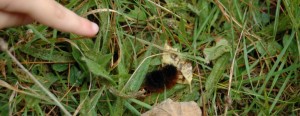What I Teach My Kids About Evolution
 People ask me what I teach my kids about evolution. The answer is, “I teach the science, but not the ideology.” The Evolutionists say, “You are failing your kids as an educator!” No, I’m teaching my children to keep a view of reality firmly in place, the very first thing a scientist ought to do. The Creationists say, “You are not instructing them in the faith!” Yes I am, but just like we don’t practice our faith only on Sundays, neither do we teach it only in religion class. Our first Kindergarten science lesson is titled, “God Made Everything.”
People ask me what I teach my kids about evolution. The answer is, “I teach the science, but not the ideology.” The Evolutionists say, “You are failing your kids as an educator!” No, I’m teaching my children to keep a view of reality firmly in place, the very first thing a scientist ought to do. The Creationists say, “You are not instructing them in the faith!” Yes I am, but just like we don’t practice our faith only on Sundays, neither do we teach it only in religion class. Our first Kindergarten science lesson is titled, “God Made Everything.”
I forfeit the controversy over teaching evolution because the adults on the ends of the spectrum seem more committed to their views than concerned for children. The immense resources dedicated to this non-issue are perplexing, and I wonder if the controversy itself does more harm to education than good. Anger and antagonism are indications of insecurity. Those emotions distract resources from real solutions, which is another issue.
Our secular science books have beautiful chapters about fossils, dinosaurs, archaeologists, species endangerment, extinction, mitosis, meiosis, reproduction, ecosystems, classification, cross-breeding, genetics, and so on. Those are matters of exact science—physics, chemistry, and biology. That offspring differ from their parents, and as such, sometimes respond to environments differently can be observed and quantified. The change in populations over time can be measured, and is the basis of evolutionary science.
The controversy is not about science though. It is about ideology. Why would I teach my kids exactly how to scientifically interpret Genesis, when it is not known? Why would I teach them that the universe is a cosmic cycle and man a mere part of that machine, when modern science did not develop in any such materialistic or pantheistic cultural psychologies? Modern science emerged in a Christian culture, under a realistic mindset that rejected long-standing assumptions that contradicted the Christian Creed. Why instill a failed psychology in budding scientists?
It’s better to teach kids to make distinctions between what is known and what is not known, which is not easy even for adults, and to humbly admit where knowledge is lacking. That’s how you teach children to guard against blind attachments to prideful fictions. That’s how you teach them to search for truth—to use reason as far as it will go, but to see science as a gift from God that should be guided by faith.
Fundamentally, I teach my kids that there is no conflict between science and faith, for the claim of such conflict is a myth, and I don’t base their education on lies.

